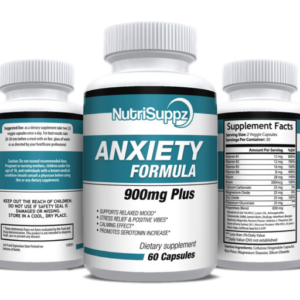16 Jun Understanding Anxiety: Causes, Symptoms, and Management
Understanding Anxiety: Causes, Symptoms, and Management
Anxiety is a natural response to stress and can be beneficial in some situations, but when it becomes overwhelming or chronic, it can interfere with daily life and well-being. Here’s an in-depth look at anxiety, its causes, symptoms, types, and management strategies.
What is Anxiety?
Anxiety is an emotion characterized by feelings of tension, worried thoughts, and physical changes like increased blood pressure. While occasional anxiety is a normal part of life, anxiety disorders involve more than temporary worry or fear.
Causes of Anxiety
- Genetic Factors: Anxiety disorders can run in families, suggesting a genetic predisposition.
- Brain Chemistry: Imbalances in neurotransmitters (chemical messengers in the brain) can play a role.
- Environmental Stress: Traumatic events, significant life changes, or prolonged stress can trigger anxiety.
- Medical Conditions: Some health issues, such as heart disease, diabetes, and thyroid problems, can contribute to anxiety.
- Substance Use: The use and withdrawal from substances like alcohol, caffeine, and drugs can cause or exacerbate anxiety.
Symptoms of Anxiety
Anxiety can manifest in various ways, affecting both the mind and body:
- Physical Symptoms: Increased heart rate, sweating, trembling, shortness of breath, dizziness, gastrointestinal issues.
- Emotional Symptoms: Feelings of dread, restlessness, irritability, and fear.
- Cognitive Symptoms: Persistent worry, difficulty concentrating, overthinking, and an overestimation of threats.
- Behavioral Symptoms: Avoidance of feared situations, compulsive behaviors, and social withdrawal.
Types of Anxiety Disorders
- Generalized Anxiety Disorder (GAD): Chronic anxiety, exaggerated worry, and tension, even when there is little or nothing to provoke it.
- Panic Disorder: Recurrent, unexpected panic attacks—sudden periods of intense fear accompanied by physical symptoms.
- Social Anxiety Disorder: Intense fear of social situations where one might be judged or embarrassed.
- Specific Phobias: Irrational fears of specific objects or situations, like heights, spiders, or flying.
- Obsessive-Compulsive Disorder (OCD): Recurrent, unwanted thoughts (obsessions) and/or repetitive behaviors (compulsions).
- Post-Traumatic Stress Disorder (PTSD): Anxiety following exposure to a traumatic event, characterized by flashbacks, nightmares, and severe anxiety.
Managing Anxiety
Managing anxiety often requires a multifaceted approach. Here are some effective strategies:
- Therapy:
- Cognitive Behavioral Therapy (CBT): Helps individuals identify and change negative thought patterns and behaviors.
- Exposure Therapy: Gradually exposes individuals to anxiety-provoking situations to desensitize them.
- Dialectical Behavior Therapy (DBT): Combines CBT with mindfulness techniques to manage intense emotions.
- Medication:
- Antidepressants: SSRIs and SNRIs are commonly prescribed for anxiety.
- Benzodiazepines: Used for short-term relief but can be addictive.
- Beta-Blockers: Help manage physical symptoms of anxiety, such as rapid heartbeat.
- Lifestyle Changes:
- Regular Exercise: Physical activity releases endorphins and reduces anxiety.
- Balanced Diet: A nutritious diet supports overall health and can help manage anxiety.
- Adequate Sleep: Quality sleep is crucial for emotional regulation and mental health.
- Mindfulness and Relaxation Techniques:
- Meditation: Helps calm the mind and reduce anxiety.
- Deep Breathing: Reduces physical symptoms of anxiety by calming the nervous system.
- Yoga: Combines physical movement with mindfulness to reduce stress.
- Support System:
- Friends and Family: Talking to loved ones about your anxiety can provide emotional support.
- Support Groups: Connecting with others who understand your experiences can be comforting.
- Natural Supplements:
- Herbal Remedies: Valerian root, passionflower, and chamomile are known for their calming effects.
- Nutritional Supplements: Magnesium, omega-3 fatty acids, and B vitamins can support mental health.
- Avoiding Triggers:
- Limit Caffeine and Alcohol: Both can exacerbate anxiety symptoms.
- Avoid Nicotine and Recreational Drugs: These substances can increase anxiety levels.
- Structured Routine:
- Maintaining a regular daily schedule can provide a sense of control and reduce anxiety.
When to Seek Professional Help
If anxiety is interfering with your daily life, it’s important to seek professional help. A mental health professional can provide a diagnosis and develop a personalized treatment plan. Don’t hesitate to reach out if you experience:
- Persistent or severe anxiety
- Difficulty managing your daily responsibilities
- Physical symptoms that are impacting your health
- Thoughts of self-harm or suicide
Conclusion
Anxiety is a complex but manageable condition. Understanding its causes, symptoms, and various treatment options can empower individuals to seek the help they need and adopt effective strategies to improve their quality of life. Whether through therapy, medication, lifestyle changes, or natural supplements, relief is possible, and taking the first step towards managing anxiety is a crucial part of the journey to mental well-being.


No Comments